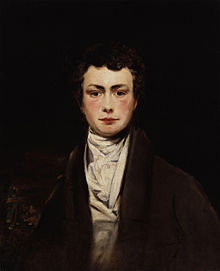Miser Catulle, desinas ineptire, etc.
Cease the sighing fool to play;
Cease to trifle life away;
Nor vainly think those joys thine own,
Which all, alas, have falsely flown.
What hours, Catullus, once were thine.
How fairly seemed thy day to shine,
When lightly thou didst fly to meet
The girl whose smile was then so sweet--
The girl thou lovedst with fonder pain
Than e'er thy heart can feel again.
Ye met--your souls seemed all in one,
Like tapers that commingling shone;
Thy heart was warm enough for both,
And hers, in truth, was nothing loath.
Such were the hours that once were thine;
But, ah! those hours no longer shine.
For now the nymph delights no more
In what she loved so much before;
And all Catullus now can do,
Is to be proud and frigid too;
Nor follow where the wanton flies,
Nor sue the bliss that she denies.
False maid! he bids farewell to thee,
To love, and all love's misery;
The heyday of his heart is o'er,
Nor will he court one favor more.
Fly, perjured girl!--but whither fly?
Who now will praise thy cheek and eye?
Who now will drink the syren tone,
Which tells him thou art all his own?
Oh, none:--and he who loved before
Can never, never love thee more.
* * * * *
"Neither do I condemn thee; go, and sin no more!"
--ST. JOHN, chap. viii.
Oh woman, if through sinful wile
Thy soul hath strayed from honor's track,
'Tis mercy only can beguile,
By gentle ways, the wanderer back.
The stain that on thy virtue lies,
Washed by those tears, not long will stay;
As clouds that sully morning skies
May all be wept in showers away.
Go, go, be innocent,--and live;
The tongues of men may wound thee sore;
But Heaven in pity can forgive,
And bids thee "go, and sin no more!"
Imitation Of Catullus. To Himself
Thomas Moore
(1)
Poem topics: farewell, feel, heaven, life, pain, smile, truth, woman, soul, innocent, gentle, mercy, sweet, long, play, stay, forgive, morning, fool, warm, Print This Poem , Rhyme Scheme
Submit Spanish Translation
Submit German Translation
Submit French Translation
Write your comment about Imitation Of Catullus. To Himself poem by Thomas Moore
Best Poems of Thomas Moore
